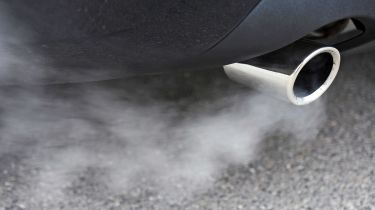Car buyers experiencing diesel doubt after emissions uproar
New survey finds motorists are shunning diesels after a spate of negative stories about the fuel's environmental impact

Motorists are shunning diesel models over recent reports on the negative effects of their emissions, according to a new poll. A survey by Carbuyer.co.uk found 61 per cent of drivers had been put off choosing a diesel as their next model while analysis of Google search trends reveals buyers looking for hybrid cars in the first quarter of 2017 has more than doubled.
The findings are supported by figures from the Society of Motor Manufacturers and Traders (SMMT), which show diesel sales are down 9.2 per cent in February 2017 compared with February 2016. Sales of alternative-fuel vehicles such as hybrids and battery-powered cars were up 48.9 per cent over the same period.
A third of respondents said they had been unaffected by recent, negative diesel cases while six per cent admitted they weren't aware of any news on the fuel. Recent headlines have included rumours of an extra diesel charge for parts of London and a potential diesel scrappage scheme.
Carbuyer editor, Stuart Milne, said: “Our poll and the SMMT’s sales data both suggest diesel’s unpopularity could well grow in the coming months. While diesel can still be a cost-effective choice for high-mileage motorists and those running larger cars, we regularly advise buyers that modern petrol, hybrid and plug-in vehicles can be a better option for shorter trips and urban motoring in particular.”
Diesel cars surged from making up around 10% of the new car market in the nineties to just under 50% today – in part thanks to tax incentives and a perception of diesel as being greener than petrol.
Since 2001, the UK’s road-tax system has incentivised the purchase of cars with low CO2 output, but a new system coming into force on 1 April sees cars emitting any amount of CO2 liable for at least a £140 annual charge. Only zero-emissions vehicles, such as electric cars, will escape.
While diesel engines don’t produce as much CO2, they’re more polluting than petrol engines in other ways, emitting relatively high levels of nitrogen oxide and particulate matter – microscopic pieces of soot – and this is where health concerns arise.
Diesel exhaust fumes are recognised as posing a significant threat to human health, linked to everything from cancer and heart problems, to lung conditions such as asthma and bronchitis; there’s even evidence to suggest they play a role in the development of dementia.
• Euro 6 emissions standards explained
A 2016 study by the Royal College of Physicians and the Royal College of Paediatrics and Child Health, meanwhile, found 40,000 early deaths in the UK are due to air pollution, every year.
Tightening regulations are also increasing the list price of diesel cars, making them more expensive to buy. The latest diesel engines also use AdBlue, a chemical that’s injected into exhaust fumes to reduce the effects of pollutants, plus diesel fuel is more expensive to buy than petrol. All of this is expected to price diesel engines out of certain sectors of the market, and the diesel supermini is likely to become extinct within a few years.
• Diesel ban: what next for diesel?
Dealers we spoke to said there had been a marked shift in attitude towards diesel cars among customers. "A few months ago, customers would look at the petrol and diesel models and decide on cost and fuel consumption,” said one. “Now some are just flat-out refusing to consider diesel, which is something we've never seen before. Those that don't refuse outright are more wary and are asking more questions.”
Another dealer we spoke to added: "We order new and used cars for stock weeks in advance and usually have the right mix of petrol and diesel models. But in the past few weeks there's been a real shift. The petrol cars are in short supply and there's a waiting list, but I could deliver a diesel tomorrow."
Would you be put off buying a diesel car? Let us know in the comments...
Find a car with the experts


